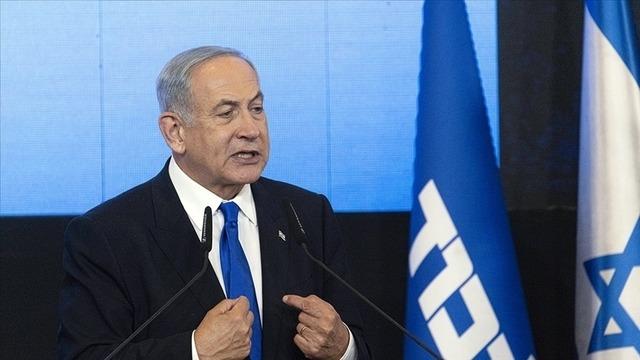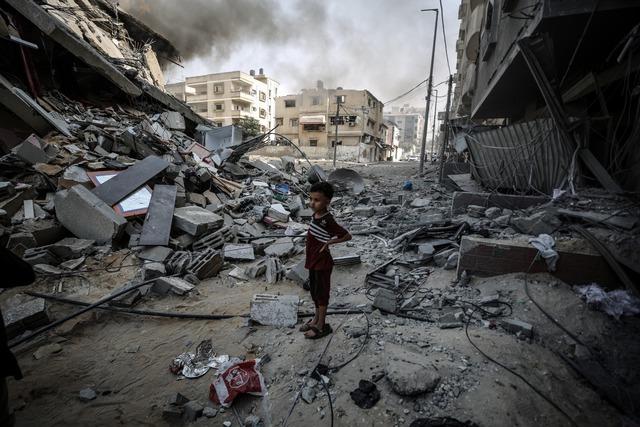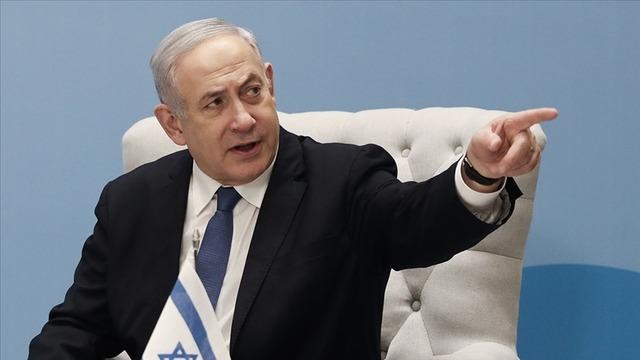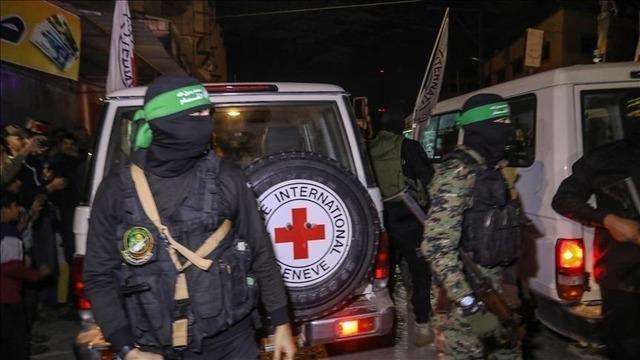Hamas complained about the progress of the ceasefire negotiations. According to Hamas officials, Israel’s current conditions have fallen behind previous scenarios. Informing Turkey, Hamas described the US’s stance in the negotiations as a “rosy picture” and stated that Israel did not even respond to the mediators’ offers during last week’s talks.
THEY CONTACTED TURKEY
According to Foreign Ministry sources, Hamas officials contacted Turkey over the weekend and provided information about the negotiation process with Israel. Hamas officials noted that the Americans were “painting a rosy picture” of the progress of the negotiations, but that this was not the real situation in the negotiations.
According to Hamas, the conditions put forward by Israel fall short of the scenario previously supported by the United Nations Security Council (UNSC) on June 10 and even the conditions approved by Hamas on July 2.
Accordingly, Israel wants Hamas to accept Israel’s presence in the Philadelphia Corridor; to monitor Gazans crossing from south to north through checkpoints in the Netzarim Corridor; and to veto 100 names from a list of approximately 300 prisoners that Hamas wants released.
Another additional demand includes the number of Palestinians Israel wants to exile from Gaza and Ramallah. In this context, Israel wants 200 people to leave Palestine.
According to information provided by Hamas to Turkish foreign ministry officials, Israel did not even respond to the mediators’ offers during last week’s talks. According to Hamas, Israeli Prime Minister Benjamin Netanyahu’s ultimate aim is to buy time to continue the military operation.
NETANYAHU WANTS TO KEEP CONTROL ON THE EGYPT-GAZA BORDER
On the other hand, Israeli Prime Minister Benjamin Netanyahu stated that in the ceasefire and mutual prisoner exchange negotiations, he will insist on the control of the so-called “Philadelphi Corridor” along the Egypt-Gaza border and the release of “the largest number of living” Israeli prisoners from Gaza.

In a written statement from the Israeli Prime Minister’s Office, Netanyahu said that “those who constantly leak information about the talks are harming the achievement of the agreement.”
Arguing that Hamas, which was said during the negotiations that it “would not agree to an agreement until the war was ended”, later changed its position, Netanyahu said that it now insists on keeping control of the Philadelphi Corridor on the Egypt-Gaza border.
Netanyahu also said he was working to include the release alive of the maximum number of Israeli prisoners in the Gaza Strip in the agreement, adding that “these will enable the war to achieve its goals.”
US Secretary of State Antony Blinken, who is visiting Israel, is scheduled to meet with Netanyahu tomorrow to negotiate a ceasefire and a mutual prisoner swap agreement that will end Israel’s attacks on Gaza that have been going on for more than 10 months.
According to the Israeli press, it was reported that Blinken is expected to put pressure on Netanyahu to change his mind on the articles that he insists will complicate the agreement.
Ceasefire talks took place in Qatar
Negotiations between Israel and Hamas were held in Doha, the capital of Qatar, on August 15-16 to discuss a prisoner swap and a ceasefire in the Gaza Strip.
The negotiations in Doha, which were announced to have “gone well”, were attended by delegations headed by Qatari Prime Minister and Foreign Minister Sheikh Mohammed bin Abdulrahman Al Thani, US Central Intelligence Agency (CIA) Director Bill Burns, Egyptian Intelligence Director Abbas Kamil and Mossad Director David Barnea.

Senior Hamas officials had pointed out to Al Jazeera television channel that the issues agreed upon in the proposal announced by US President Joe Biden on July 2 were not included in the results of the negotiations in Doha.
According to information received from Palestinian sources, the outcome of the meeting in Doha does not include articles regarding the Netzarim Corridor, which divides Gaza in two, and the Philadelphia Corridor on the Gaza Strip and Egyptian border.
NETANYAHU DEMANDS PRESSURE ON HAMAS
Netanyahu had requested international pressure be put on Hamas regarding the articles he added to the ceasefire draft table, known as the “May 27 principles.” The Israeli press listed the articles Netanyahu insisted on, referred to as the “May 27 principles,” as follows:
Israel’s dominance over the Philadelphia Corridor border between the Gaza Strip and Egypt and the Rafah Border Crossing from Gaza to Egypt; the establishment of a control mechanism in the Netzarim Corridor, which divides the Gaza Strip into the north-south line, to prevent the return of possible Hamas members who would go from the south to the north of Gaza.

In addition, it is stated that Netanyahu wants to preserve Israel’s right to attack Gaza again after the ceasefire agreement is signed.
It was reported in the press that Israel’s chief negotiator, Mossad Director David Barnea, and Defense Minister Yoav Gallant informed Netanyahu that the articles he wanted to add would make the agreement difficult.
THE HUMAN DISASTER CAUSED BY ISRAELI VIOLENCE IN GAZA CONTINUES
It is estimated that there are around 120 Israeli prisoners, dead and alive, in the Gaza Strip. Hamas’ armed wing, the Izz ad-Din Qassam Brigades, announced that around 70 Israeli prisoners were killed in Israeli attacks.
Israel has continued its violence in the Gaza Strip in the run-up to the negotiations, with the Israeli army announcing that it will launch attacks on areas where it had previously forced Palestinian civilians to flee as safe zones, while issuing new evacuation orders.
The humanitarian disaster, in which the death toll from Israel’s attacks on Gaza has exceeded 40,000, mostly women and children, in the last 10 months, is deepening with each passing day. (AA)
